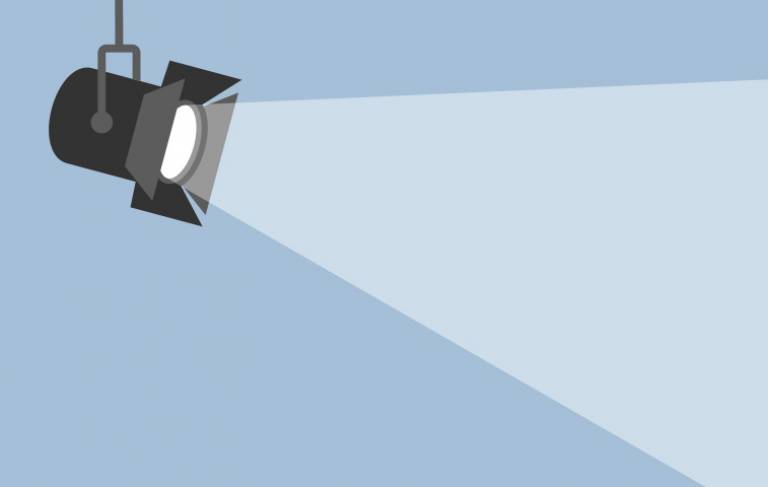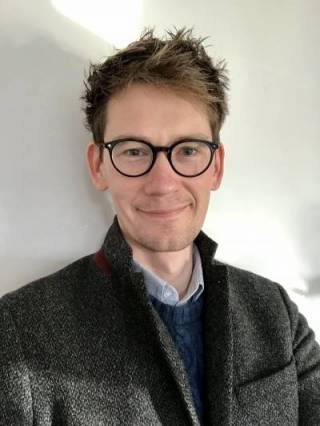Myles Harris
Myles is a PhD student at UCL Institute for Risk and Disaster Reduction (IRDR), and also one of the coordinators of IRDR Space Health Risks Research Group.

1 April 2021

Myles is currently doing data collection for his PhD, which involves interviewing clinical practitioners with experience of providing healthcare in remote environment or outer space with limited resources. His research is in collaboration with Remote Area Risk International (a not-for-profit) and the MOD’s Royal Centre for Defence Medicine, and so involves speaking with people from both civilian and military healthcare services. On other days, he is leading the development of IRDR Space Health Risks Research Group, working with their affiliate (UCL) and associate (non-UCL) members.
We have some very exciting projects during the next 18 months which are a lot of work, but thoroughly enjoyable to be a part of. No two days are the same, which is something I really enjoy about being a PhD student at UCL. I have many favourite things about the department, the foremost being a member of such a diverse team. IRDR is a multidisciplinary department, which has provided me with the opportunity to learn from people with very different backgrounds to my own. In comparison to previously working as a Nurse, in clinical practice and education, you interact with people from other disciplines frequently; however, in IRDR there is a culture of using a multidisciplinary approach to answer complex research questions, which enables peer-learning and critical appraisal.
The IRDR Space Health Risks Research Group has a number of upcoming projects. The first is a Space Health and Disaster Risk Reduction Symposium on 1 September 2021 - a theoretical exploration of how to provide interdisciplinary healthcare during a space mission to another planetary body. The findings of the symposium will be applicable to remote healthcare on Earth, where resources and accessibility are similarly limited in comparison with outer space. During the symposium, case studies of realistic healthcare scenarios during planetary exploration will be developed, which will be enacted during the second project.
This second project is the first pilot analogue space mission in the UK, due to take place in Spring 2022. Analogue space missions are simulated space missions that take place on Earth - an established field in Europe, the USA and other areas of the world, but never before conducted in the UK. The pilot mission will look at how to provide interdisciplinary healthcare on another planetary body by using the case studies developed during the earlier symposium. Analogue astronauts - healthcare providers - will simulate caring for patients during three Extra Vehicular Activity (or Spacewalk) case studies, including one being overnight. The research will put the findings of the symposium to the test, and will also collect empirical data about the decision making process of providing simulated space healthcare. This will also contribute to remote healthcare on Earth, and lay the foundation of analogue space mission research in the UK.
Before moving to London, Myles lived in Sussex on the outskirts of (what is now) the South Downs National Park. He moved to London to train as an Nurse and had planned to move back out of the Capital after gaining some experience.
“"When I first moved to London, I had to learn the etiquette of London transport very quickly – coming from an area where everyone speaks to anyone, not speaking to people on the tube seemed very strange at first! Nearly 10 years on, I am still here and very much enjoy London life; although, I do enjoy going back into the countryside whenever I can".
Outside of work, mountaineering is his chosen hobby.
“"It’s a very broad sport and there is something for everyone – from valley walks, to crag climbing or long-duration mountaineering expeditions. Personally, I enjoy winter mountaineering the most. The European Alps are fantastic for snowshoeing, whereas the Atlas Mountains in North Africa or Scandinavia offer exceptional winter trekking. Having said this, I have spent many happy winter seasons closer to home in Scotland exploring the sub-Arctic plateau of the Cairngorm National Park and dramatic landscapes of Glencoe and the Nevis Ranges. Winter mountaineering is challenging, so if you enjoy the outdoors in summer and would like to step out of your comfort zone and into the depths of winter at -10OC, make sure to go with a suitably experienced and qualified guide".
IRDR Space Health Risks Research Group has brought together a multidisciplinary community of academics and practitioner, including researchers from UCL, and Universities of Manchester, Bristol and King’s College London; collaborators from the Austrian Space Forum, Space Generation Advisory Council, UK Space LABS, RAF Royal Centre for Aviation Medicine; and industry partners – UK Analogue Mission, Break Off Labs and Remote Area Risk International. Please see their webpage for more information about these projects (https://www.ucl.ac.uk/risk-disaster-reduction/space-health-risks-research-group) or email: irdr-spacehealthrisks@ucl.ac.uk.
 Close
Close

